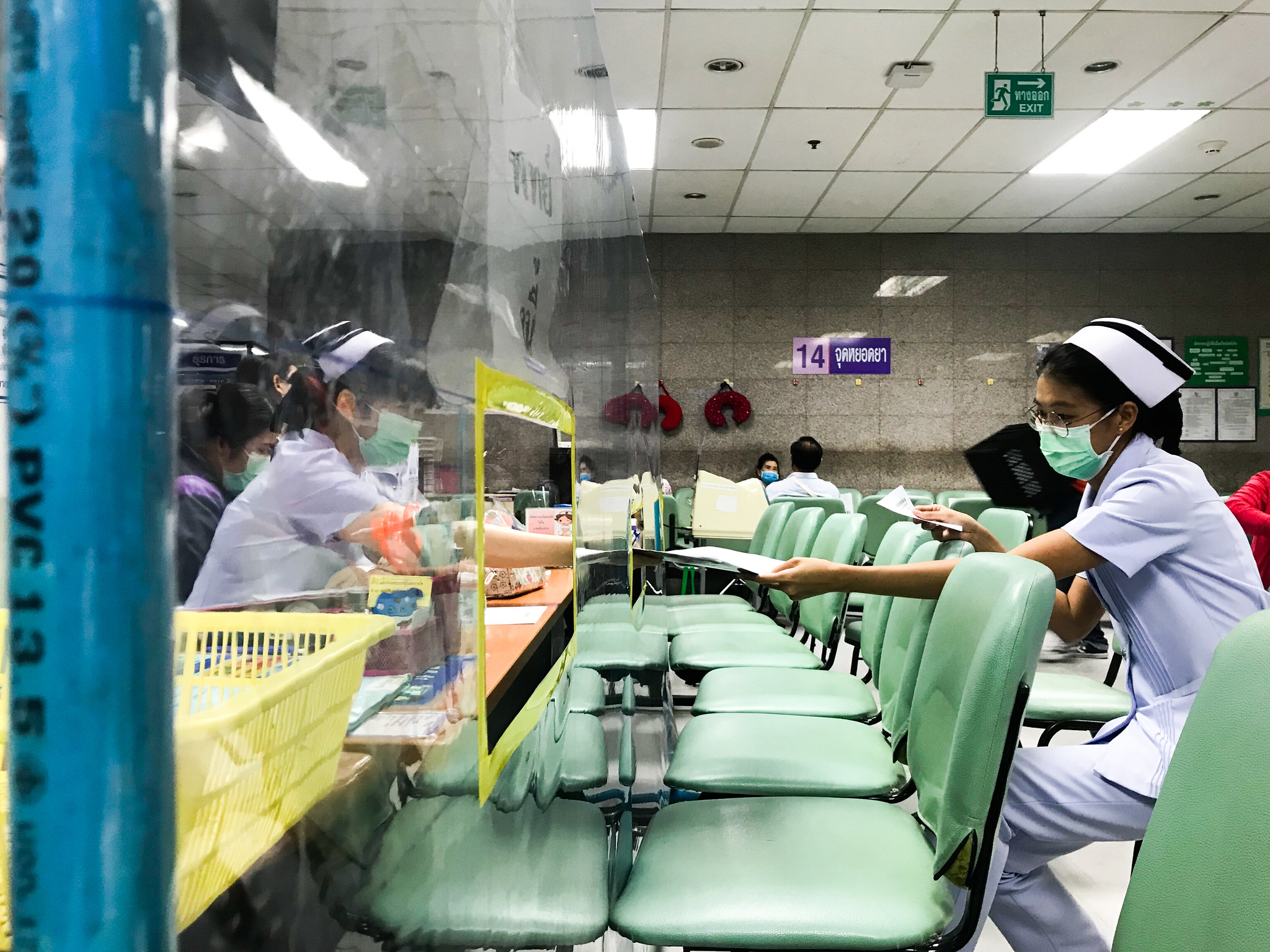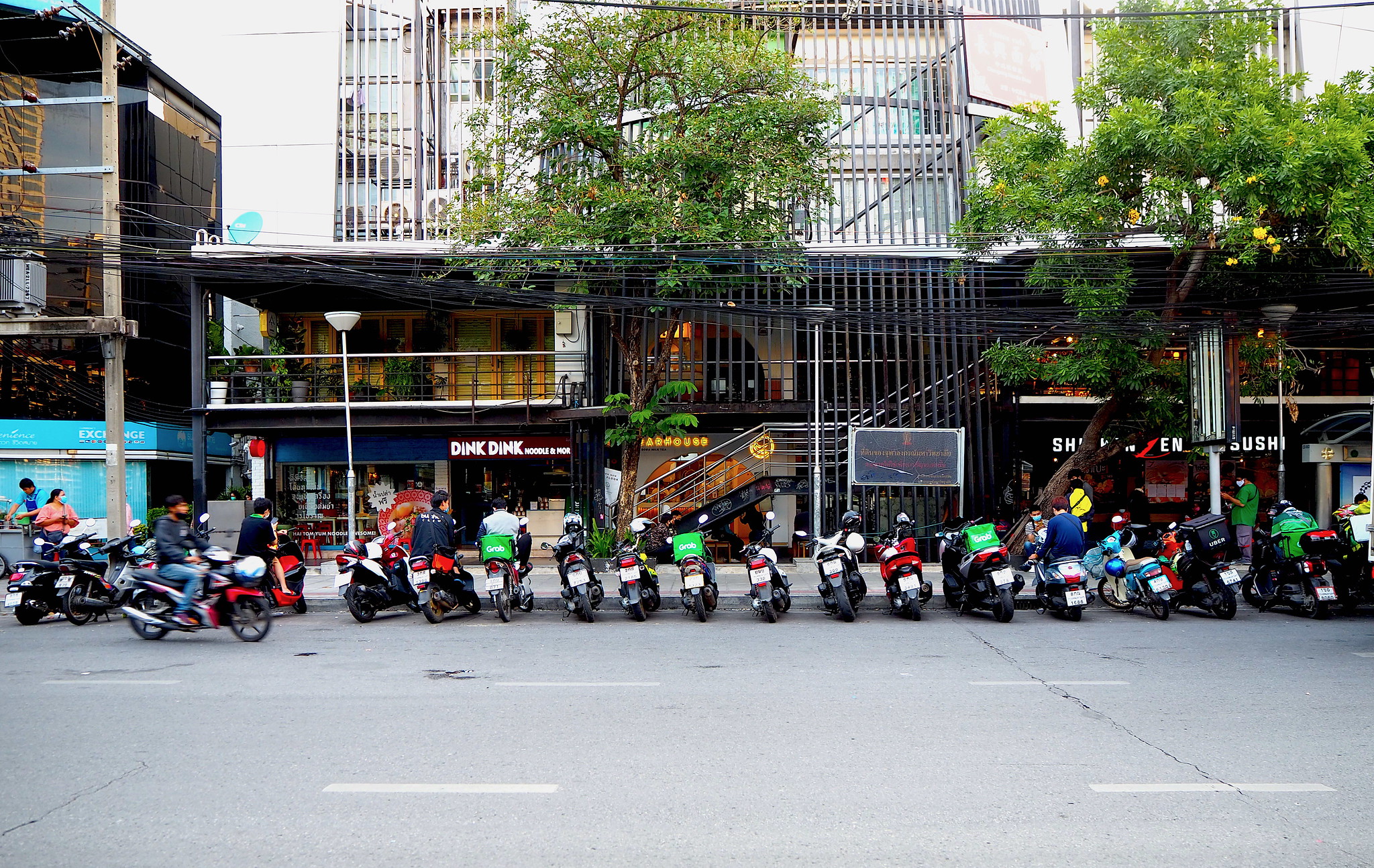COVID-19 in Thailand
Thailand was the first country outside of China to have confirmed a patient with the novel coronavirus (COVID-19) infection on 13 January 2020. On March 1, 2020, Thailand’s Ministry of Public Health (MoPH) designated COVID-19 as a dangerous communicable disease under the Communicable Diseases Act B.E. 2558 (2015). An emergency in all areas of the Kingdom of Thailand was declared by the Thai Prime Minister on March 20, 2020, pursuant to the Emergency Decree on Public Administration in emergency situations. The emergency period was originally to last until April 30, 2020, but has been extended for one more month.
As of January 3rd, 2021, Thailand has a total of 7,694 confirmed cases, 64 deaths, and 3,293 patients are now hospitalized, according to the daily announcement from the Centre for COVID-19 Situation Administration (CCSA), Department of Disease Control (DDC), Ministry of Public Health (MoPH). Essential information on Covid-19 is also available for public awareness and updates.
Public health responses
Thailand has introduced public health measures to control COVID-19 under the Communicable Diseases Act B.E. 2558 (2015). Measures have included limitations on international travel and screenings at all ports of travel, as well as quarantine for incoming travellers from the countries listed in the disease infected zones.1,2 All Thai citizens who have high fever and a high risk of exposure to the COVID-19 are advised to attend hospital screening and/or impose self quarantine. The MoPH has also issued guidelines for medical practices and treatment in relation to COVID-19. 766 local quarantine facilities have capacity for 21,302 people across the country. The DDC/MoPH has also established an official COVID-19 responses resource page.
As an outreach to identify suspected carriers by setting up the criteria of Patient under investigation (PUI), active case finding is being conducted in all districts, targeting potential risk groups such as those who have had contact with returnees from neighbouring countries. As of May 14, 2020, over 110,000 patients have been under investigation.
In addition, Thailand joined the WHO “Solidarity Trial,” a multi-country clinical study for potential drug treatments for Covid-19.

Preventive measurement at the hospital by ILO/Alin Siirisaksopit from Flickr under CC-BY-NC-ND 3.0 IGO.
Technological solutions have become a key element of Thailand’s coronavirus response. Emerging technologies (such as Covid19Bot, SabaideeBot, DGA Chatbot, etc.) and data-driven platforms (such as COVID-19 Portal, COVID Tracker, Workpoint News, etc.) are key tools developed by multi-sectoral voluntary experts to inform the public on updated infection cases, locations with high rates of infection, useful information of locations of pharmacies and hospitals, and essential contacts. Also, several mobile applications providing functions from contact tracing to assessing distance from the closest COVID-19 services have been created, such as MorChana, Away Covid-19, Card2U, and GooCare, just to name a few.
Legislative measures
Prior to the declaration of the State of Emergency, Thai government initiated 14 urgent measures to handle the COVID-19 outbreak. After the declaration of emergency, a series of legislation, notifications, and ministerial regulations in response to the COVID-19 outbreak in Thailand were adopted and enforced under the Emergency Decree on Public Administration in emergency situations. Key centralized measures during the first month of the state of emergency were imposing a curfew, limiting group activities such as closing schools and delaying the Thai New Year/Songkran break. Venues considered to be high-risk because many people gather, such as department stores, sports stadiums, and entertainment venues, were ordered to close temporarily. Lockdown measures were also decentralised, with provincial governors determining for their own provinces whether to implement lockdown or not.
ODT has collected key legislative issues relevant to COVID-19 in Thailand here.
Economic impacts & responses
The COVID-19 pandemic brings a significant disruption to both the Thai and global economies.
Despite the introduction of economic packages, with more expected,Thailand’s overall economy has suffered significant losses with huge impacts on major industries, including tourism and airlines as well as small and medium enterprises (SMEs).
One economic relief measure permits the Ministry of Finance and the Bank of Thailand to use up to 1.9 trillion baht to provide loans and funds to support economic and social rehabilitation from COVID-19 impacts. Supporting relief measures include soft loans, debt relief and special tax measures for SMEs and business operators, a fund of 5,000-baht cash given to informal workers for 3 months, and social security funds to formal workers.
Social impacts and responses
Like other countries, the COVID-19 pandemic has impacted people’s income and led to job losses. Social distancing and staying at home are two key aspects of the government’s response to the pandemic that have led to major challenges for vulnerable groups–migrant workers, laborers, older people, disabled people– who already struggled prior to the pandemic. COVID-19 transmission in prisons overcrowded with triple the number of inmates as there is capacity is another concern, although the Department of Corrections (DOC) has implemented some measures to prevent the spread of COVID-19 and reduce the fears of inmates.
The Ministry of Finance has prioritised as a short-term action a payment scheme for disabled and underprivileged people. Additional important steps are to build a fit-for-purpose social protection system to supporting people in the medium- and long-term, including ensuring a minimum package of benefits for the most vulnerable groups, building effective delivery mechanisms for social protection programs, and complementing the social protection programs with labor market policies tailored to the needs of a knowledge-based economy.
The Thai Prime Minister also reached out to Thailand’s 20 richest people to support initiatives for the livelihoods of Thai citizens during and after the pandemic.

New normal ‘staying and dining’ at home, with service of food delivery by ILO/Alin Siirisaksopit from Flickr under CC-BY-NC-ND 3.0 IGO.
Environmental impacts
Some positive impacts resulting from the COVID-19 outbreak are reduced pollution in big cities like Bangkok, rare wildlife being spotted in national parks, and coral growing back. However, there is more plastic pollution from an increase of takeaway and delivery food packages, and more infectious waste, particularly surgical masks of up to 1.5-2 million pieces a day.
Although forest fires are a common occurrence in the dry season in northern Thailand, forest fires during the lockdown have been considered the worst in memory, exacerbated by limited people and resources available to combat these fires. Commonly blamed for these fires while at the same time being held responsible for keeping the fires under control, local indigenous communities and highlanders are no longer able to help control the fires and regenerate the forests due to lockdown measures.
Click here for datasets related to the COVID-19 in Thailand.
Last update: January 3rd, 2021
Related links of COVID-19 updates:
- Daily updates of COVID-19 for media by DDC (in English and Thai)
- Thailand MoPH Portal on COVID-19 (in Thai)
- COVID-19 WHO Thailand Situation Report (in English and Thai)
- COVID-19 Impact on Thai Labor Market (in English and Thai)
- Dashboard: COVID-19 and Thai Labor Market (in English and Thai)
- Essential Information on Covid-19 in Thailand (in English and Thai)
References
- 1. The Notification of the Ministry of Public Health RE: Territories outside the Kingdom of Thailand defined as Disease Infected Zones of the Coronavirus Disease 2019 (COVID-19) Outbreak B.E.2563 (2020).
- 2. The Notification of the Ministry of Public Health RE: Territories outside the Kingdom of Thailand defined as Disease Infected Zones of the Coronavirus Disease 2019 (COVID-19) outbreak (edition 2) B.E. 2563 (2020).

